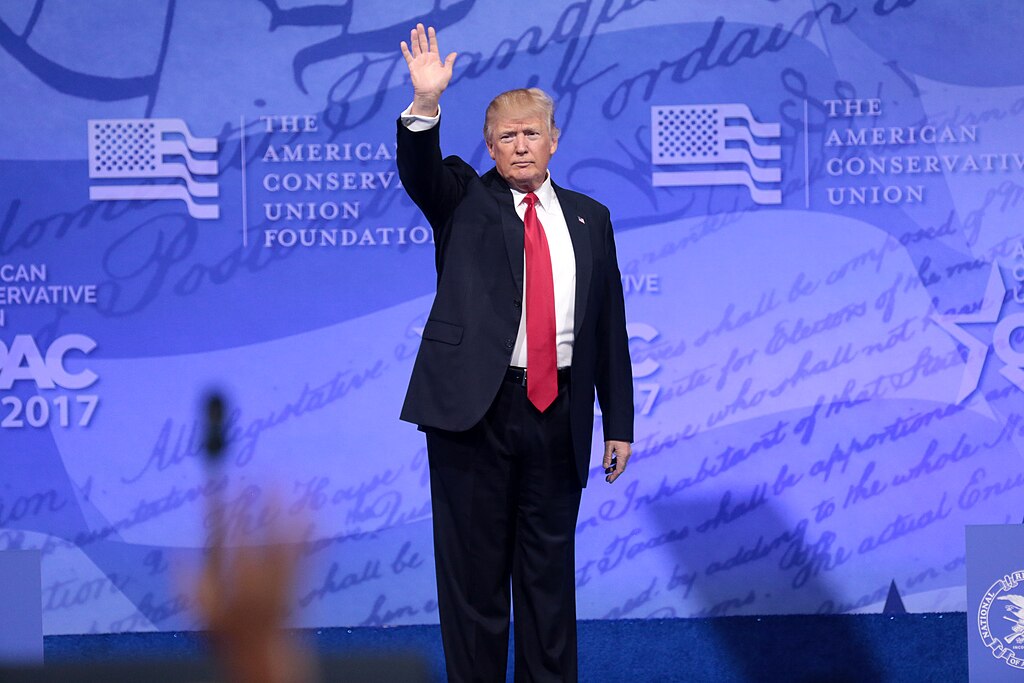Former President Donald Trump has stirred a fresh wave of debate after suggesting Canada should become the 51st state of the United States. Trump’s comment, shared on social media, pointed to significant financial subsidies and claimed Canadians would save on taxes and military protection.
“No one can answer why we subsidize Canada to the tune of over $100,000,000 a year,” Trump wrote. “Makes no sense! Many Canadians want Canada to become the 51st State. They would save massively on taxes and military protection. I think it is a great idea. 51st State!”
The remark quickly went viral, igniting both support and outrage across social and political spheres. Trump’s suggestion comes amid ongoing discussions about U.S.-Canada relations, trade agreements, and military cooperation through NATO. However, his statement has been met with skepticism from political analysts and Canadian officials, who were quick to dismiss the idea.
Trump’s Proposal Raises Questions Over U.S.-Canada Relations
While Trump did not elaborate on the specifics of his “51st state” remark, the claim that Canada receives subsidies has drawn scrutiny. Analysts argue that Canada and the U.S. share significant trade partnerships under agreements like USMCA, and the $100 million figure referenced lacks clarity.
“Canada is one of America’s closest allies and trading partners,” said political analyst Mark Roberts. “Trump’s statement appears more rhetorical than policy-driven, but it will undoubtedly stir tensions.”
Canadian leaders and citizens, meanwhile, have largely rejected the notion. Prime Minister Justin Trudeau’s office refrained from a direct comment but reiterated Canada’s sovereignty.
“Canada will always remain a proud, independent nation,” a government spokesperson stated.
Social Media Reactions Explode
Trump’s comments quickly became a trending topic online, with users reacting to the idea of Canada becoming the 51st state. Responses ranged from humor and disbelief to support from Trump’s loyal base.
User @MapleStrong posted, “Canada as the 51st state? We’d rather freeze in the Arctic than give up our independence.”
On the other hand, @MAGAforeverUSA wrote, “Trump is right! Canada could benefit from lower taxes and our military. Makes perfect sense.”
User @PoliticalHumor joked, “Does this mean we get free healthcare if Canada joins? I’m suddenly interested.”
Meanwhile, @TruePatriot2024 tweeted, “Why are we even talking about this? Canada is Canada. This is nonsense and a distraction.”
Supporter @AmericaFirst2024 commented, “Trump has a point. America and Canada already share so much. Why not make it official?”
User @CanuckPride responded, “We fought to be our own country, and we’ll keep it that way. Thanks, but no thanks.”
The Broader Implications of Trump’s Statement
Trump’s remark, while seemingly offhand, underscores broader discussions about U.S.-Canada relations. Political experts note that such statements appeal to Trump’s base but are unlikely to translate into actual policy.
“Trump’s comments are often provocative, but this one touches on national identity,” said historian Sarah Williams. “Canada’s independence is a core value, and this idea, while headline-grabbing, won’t gain real traction.”
Though the idea of Canada joining the United States has occasionally surfaced in public discourse, it remains a political and cultural nonstarter. Analysts suggest Trump’s statement reflects his trademark style of stirring conversation rather than a serious proposal.
As debates continue, Trump’s comment has once again dominated headlines, spotlighting the unique relationship between the two North American neighbors and their shared history.



 U.S.-Israel War on Iran Escalates as Gulf Conflict Disrupts Oil, Air Travel and Regional Security
U.S.-Israel War on Iran Escalates as Gulf Conflict Disrupts Oil, Air Travel and Regional Security  Argentina Tax Reform 2026: President Javier Milei Pushes Lower Taxes and Structural Changes
Argentina Tax Reform 2026: President Javier Milei Pushes Lower Taxes and Structural Changes  Israel Prepares Weeks-Long Military Campaign Against Iran Amid Escalating Air Strikes
Israel Prepares Weeks-Long Military Campaign Against Iran Amid Escalating Air Strikes  Failure of US-Iran talks was all-too predictable – but Trump could still have stuck with diplomacy over strikes
Failure of US-Iran talks was all-too predictable – but Trump could still have stuck with diplomacy over strikes  Trump Says U.S.-UK Relationship Has Deteriorated After Starmer Hesitates on Iran Strikes
Trump Says U.S.-UK Relationship Has Deteriorated After Starmer Hesitates on Iran Strikes  Trump Says U.S. Combat Operations in Iran Will Continue Until Objectives Are Met
Trump Says U.S. Combat Operations in Iran Will Continue Until Objectives Are Met  Middle East Conflict Escalates After Khamenei’s Death as U.S., Israel and Iran Exchange Strikes
Middle East Conflict Escalates After Khamenei’s Death as U.S., Israel and Iran Exchange Strikes  Trump to Attend White House Correspondents’ Dinner 2026, Ending Long Boycott
Trump to Attend White House Correspondents’ Dinner 2026, Ending Long Boycott  U.S. Military Strikes on Iran Complicate Xi-Trump Summit and Expose China’s Energy Risks
U.S. Military Strikes on Iran Complicate Xi-Trump Summit and Expose China’s Energy Risks  Zelenskiy Urges Change in Iran After U.S. and Israeli Strikes, Cites Drone Support for Russia
Zelenskiy Urges Change in Iran After U.S. and Israeli Strikes, Cites Drone Support for Russia  Does international law still matter? The strike on the girls’ school in Iran shows why we need it
Does international law still matter? The strike on the girls’ school in Iran shows why we need it  Israel Strikes Hezbollah Targets in Lebanon After Missile and Drone Attacks
Israel Strikes Hezbollah Targets in Lebanon After Missile and Drone Attacks  Trump and Merz Meet at White House Amid Iran Strikes and Trade Tensions
Trump and Merz Meet at White House Amid Iran Strikes and Trade Tensions  UK Accepts U.S. Request to Use British Bases for Defensive Strikes on Iranian Missiles
UK Accepts U.S. Request to Use British Bases for Defensive Strikes on Iranian Missiles  Trump Announces U.S. Strikes on Iran Navy as Conflict Escalates
Trump Announces U.S. Strikes on Iran Navy as Conflict Escalates  Melania Trump Chairs Historic U.N. Security Council Meeting on Children Amid Iran Conflict
Melania Trump Chairs Historic U.N. Security Council Meeting on Children Amid Iran Conflict 




























